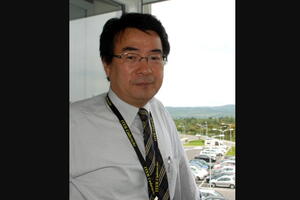Integration at work
4 Jun 2010
-
Sabina Griffith
One year ago, in June 2009, following the recommendations of the Management Advisory Committee (MAC), the ITER Project Office was restructured and split into two. The aim of the reorganization was a better definition of responsibilities and a strengthening of the Office's project management functions such as cost, schedule and in-kind management. In parallel, a new office was created to oversee technical coordination and management of the engineering activities: the Office for Central Integration & Engineering (CIE).
One look at the project's organizational chart leaves no doubt that the responsibilities of this newly-created office are immense. With nearly 120 staff, it is in fact the biggest office within the ITER Organization. It oversees and coordinates all matters related to design integration and systems engineering, the Design Office, nuclear safety issues such as the completion of the Preliminary Safety Report, assembly and operation issues and environmental aspects. In addition, an external relations section coordinates all activities related to internal and external bodies, and a Technical Integration Division that manages the development and maintenance of the technical baseline documents.
"CIE played the leading role in producing the Project Baseline that defines ITER's mission," says CIE Office Head Eisuke Tada. Every change request formulated by the various technical divisions and sections - large or small — is dealt with by CIE, following a standardized control board procedure that examines the requests and either accepts or rejects them.
Since the comprehensive Design Review in 2007-2008, Tada's team has dealt with 210 project change requests. Thirty-four others are "ongoing," mostly concerning smaller issues with no implications for the procurement of long lead items or the project's overall schedule.
So, as most of the major project change requests are behind us, and issue flags have turned from red to green on the weekly Project Progress Meeting chart making progress visible in bright colour, what remains to be done? What are the next big peaks to climb, Mr. Tada? "We will be involved with the upcoming Public Enquiry, which is part of our nuclear licensing process. Another thing on our agenda is to solve some hickups in the day-to-day cooperation between the central Design Office here in Cadarache and the drawing offices in the Domestic Agencies."
When we speak about ITER, we sometimes refer to it being a world-spanning team. To actually work out the details of this team effort, to realize this image is hard work, says Tada. "But there are means to do so, as we have shown for example by implementing the Integrated Product Teams. Integration is more than a word!"


